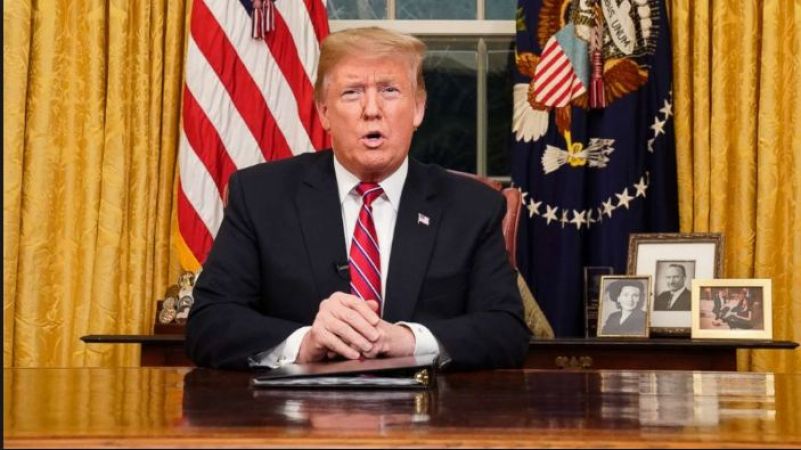
On Friday, President Donald Trump declared the southern border of the United States to be a national emergency, catapulting the country into uncertain legal and political battles as he seeks to fulfill a campaign promise that eluded him for two years. It is to be noted that he made the designation in an attempt to redirect taxpayer money from other accounts and use it to erect more than 230 miles of barriers along the U.S.-Mexico border. But Trump anticipates a flurry of legal challenges that will eventually be decided by the Supreme Court. Democrats are trying to paint the action as evidence of a rogue president who has finally gone too far and vowed to stop him.
also read India will surpass China as the world's largest energy growth market: UK report
However, Trump's announcement capped a frenetic two-month period that included the longest government shutdown in U.S. history at 35 days, the reemergence of Democrats as a political force, and a Republican Party caught between taking signals from Trump and bucking his unconventional impulses. It also begins a new phase of his presidency that will test the separation of powers, as he sidesteps Congress despite Republicans urging restraint.
also read Saudi Crown Prince Mohammed bin Salman's visit to Pakistan has been delayed by a day
During a meandering 50-minute Rose Garden news conference, Trump offered little empirical evidence to back up his assertion that there was a crisis on the border requiring an extraordinary response. Instead, he invoked hyperbolic, campaign-style rhetoric about lawlessness that he said only walls could suitably address. Democrats and the American Civil Liberties Union mapped out the ways they would try to block Trump's wall before it was completed. House Judiciary Committee Chairman Jerrold Nadler, D-N.Y., said he would summon White House counsel Pat Cipollone to Capitol Hill to explain the White House's rationale. California Attorney General Xavier Becerra, a Democrat, said he planned to work with other states to take legal action against the White House. The ACLU said it was preparing a lawsuit of its own, arguing Trump cannot legally redirect taxpayer money during an "emergency" unless it's for military construction projects that support the armed forces.
Here, Democrats and several Republicans predicted a two-pronged response to the declaration: One, having Congress vote to reject it in the coming weeks, and two, suing Trump - or at least aiding other parties who attempt to intervene.